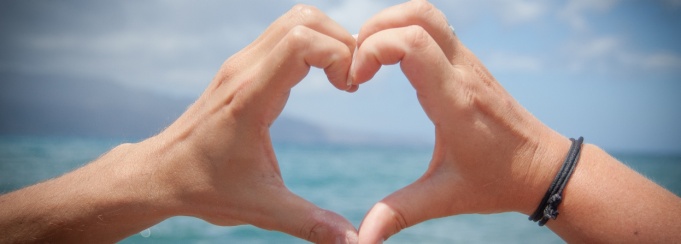From Type E to Me: Self-Care in Nursing
FEATURED ARTICLE | DECEMBER 13, 2017 | BY LAURA ANDERSON, ASSISTANT PROFESSOR, LICENSED PSYCHOLOGIST

Note from the author: Before I begin, I want to tell you that I am writing primarily as a clinician and secondarily as a researcher. You will find much of this information supported in the literature; however, this comes from my clinical mind and experiences more than scholarly articles.
When treating and consulting with nurses in my private psychology practice, I lightheartedly reference a Type E personality: Everything to Everyone.
You will not find this personality type in an official diagnostic manual. In fact, outside of working with my own clients, only in a self-care blog would I playfully reference this personality type. The problem with Type E is that caring for “me” is deprioritized. This is a problematic way of working and living. Self-care might be likened to an oxygen mask in a depressurized air cabin: you must secure your own before helping others.
The essence of self-care is nurturing oneself – holistically – in an intentional, meaningful and active way
Self-nurturing is equally important – if not more important – than nurturing those around you. This is not selfish. It is necessary for health and wellness.
True self-care is holistic, complex and highly individualized. One size does not fit all, and many different domains are targeted: physical, emotional, spiritual, social and professional.
Self-care is intentional and active. This is critical: self-care can easily fall by the wayside if not actively scheduled into your life. In my practice, health care professionals and nurses reconceptualize self-care similarly to hygiene self-care. You would NOT go without brushing your teeth, for example, for X days. Start to think of self-care activities as rituals, whether they happen daily or weekly. I recommend integrating at least one self-care activity – just for you – at least once daily.
Effective self-care should leave you feeling recharged.
You should derive pleasure, comfort or some kind of intrinsic reinforcement from the activity. It is for you and only you. It may involve other people; however, you must ultimately conceptualize it as something that recharges, invigorates or comforts you.
1. Assess your current self-care practices.
Before you consult resources, ask yourself, “How am I doing?”, considering multiple domains of self-care. The UB School of Social Work offers excellent self-care resources for professionals. There are assessments and exercises to help you on your journey to self-care. Once you have completed activities, make a list of self-care practices that seem beneficial to you. Perhaps use this to start a self-care journal wherein you will monitor your renewed commitment to self-care.
2. Schedule and incentivize your pleasant self-care activities.
Write or input them in your calendar. You might even develop a behavioral incentive system that will keep you motivated and on track. As an example, one of my clients decided to invest $4 daily into an account whenever she met her daily self-care goal. She would use the money for a basic spa treatment of her choice.
3. UNPLUG!
Many nursing students tell me that their self-care involves Netflix. This is fine as one piece of a self-care routine; however, I insist with my own clients that they put other devices down and NOT multi-device-task. When they are surfing social media, they are being neither mindful nor attentive to the self-care activity in front of them. Do you feel relaxed after mindlessly scrolling through a flurry of <140-character rants? Many of my own clients thought social media activities were relaxing until they stepped back: a practice that leaves you feeling angsty, mindless, or like you “lost time” would not be considered self-care. (Need ideas to help unplug? Check out these 365 Ways to Log Off and Live Better.)
4. Talk to one another about self-care.
This is an easy way to keep you accountable and to discover practices you hadn’t considered. Nutrition, exercise, meditation, professional development, sleep routines, work environment changes, spa days, journaling, and countless other activities qualify as self-care if you define them as such.
There is literature to support the idea that nurse self-care improves patient care. It reduces stress, burnout and compassion fatigue. Burnout and compassion fatigue influence our work: nurses who are burned out are overwhelmed, emotionally exhausted, and at increased risk for having negative feelings toward and depersonalizing patients (see Berry, 2012).
I hope I have inspired at least a few of you to treat yourselves as well as you treat others. Increasing meaningful, intentional self-care activities will bring more contentment, fulfillment and hope into your lives. Why not give it a try?
Berry, J. O. (2012). My clients, my students, my patients, myself: Self-care advice for caring professionals, Center for Learning and Leadership/UCEDD.